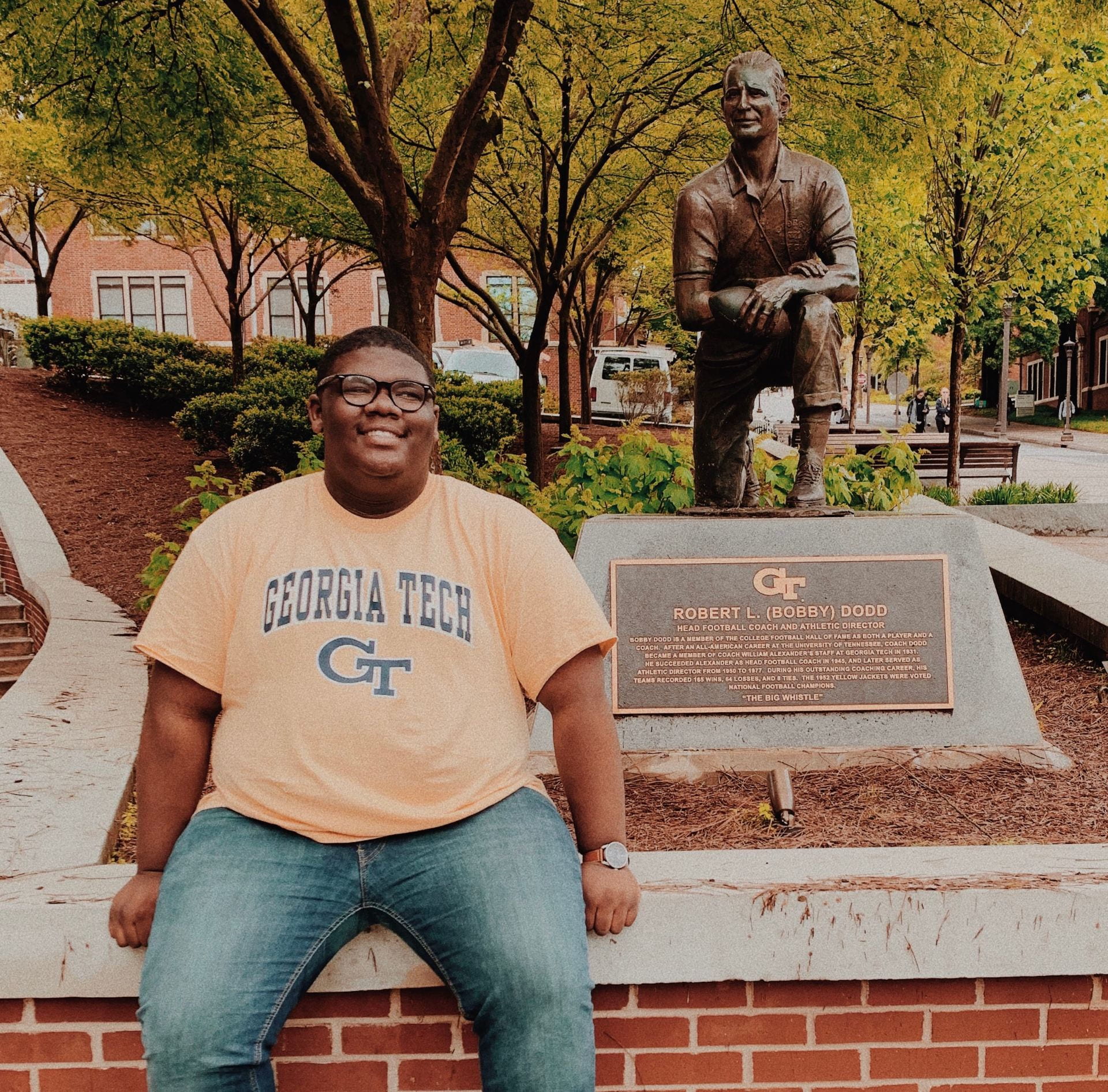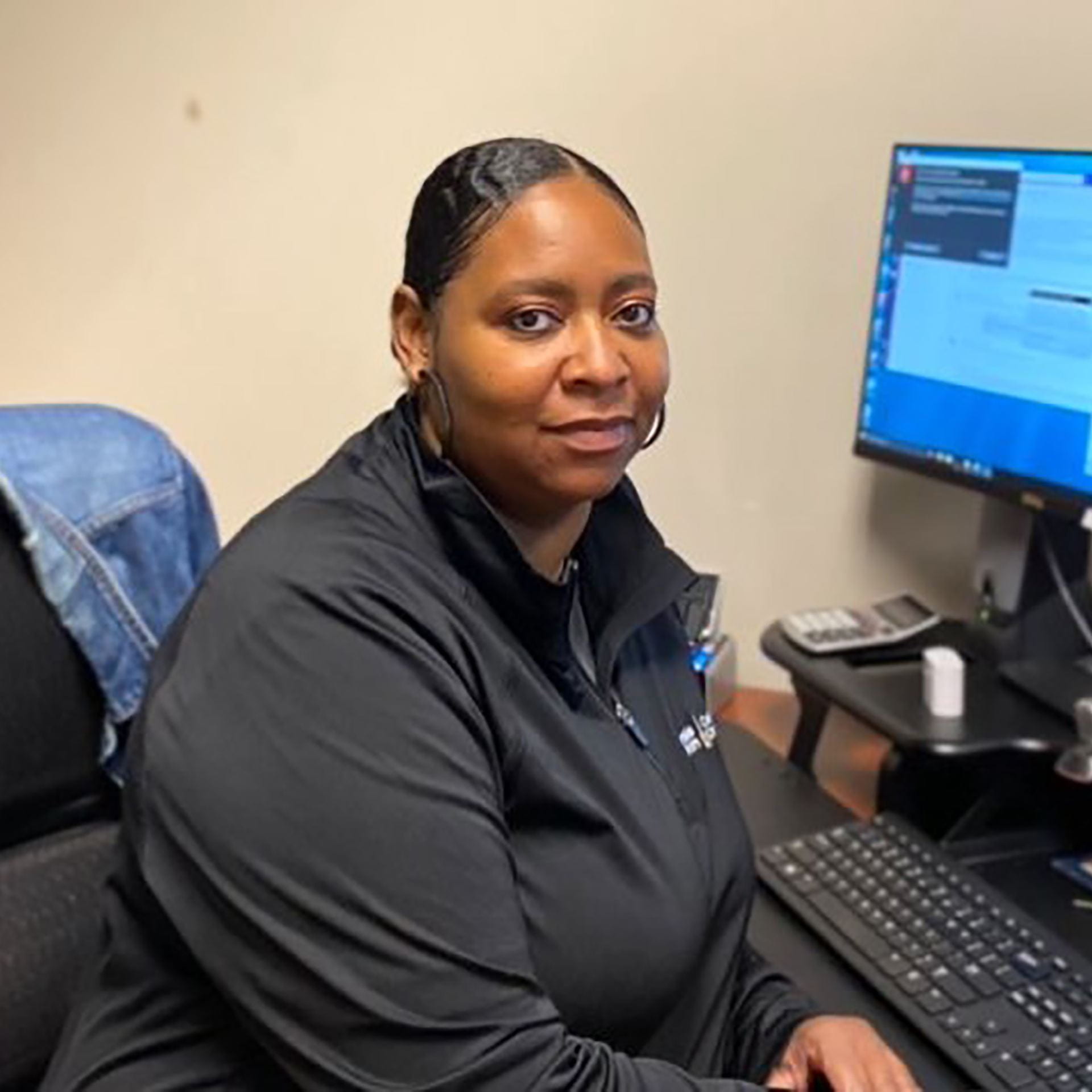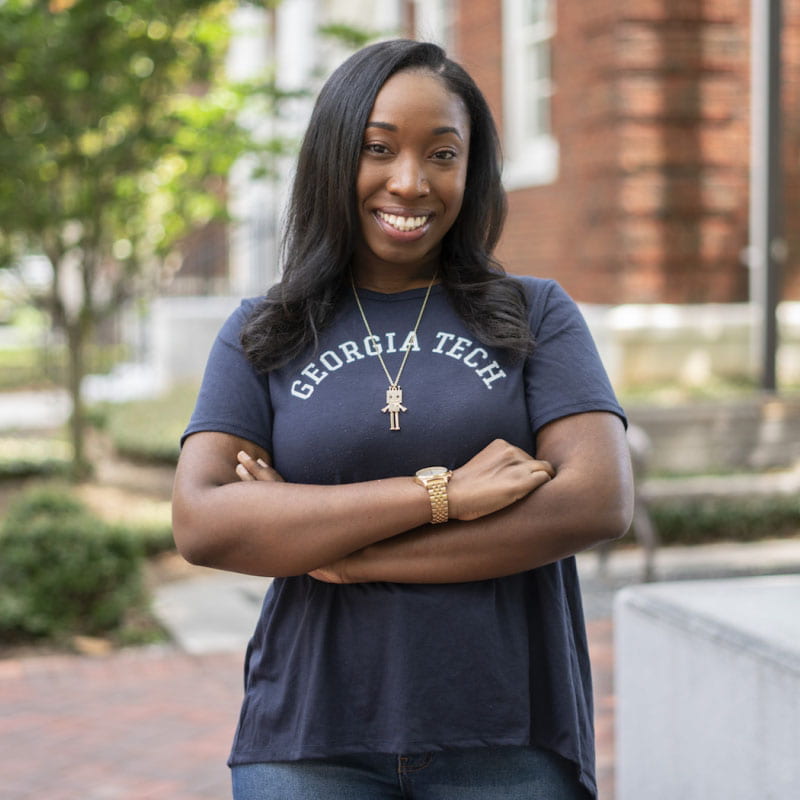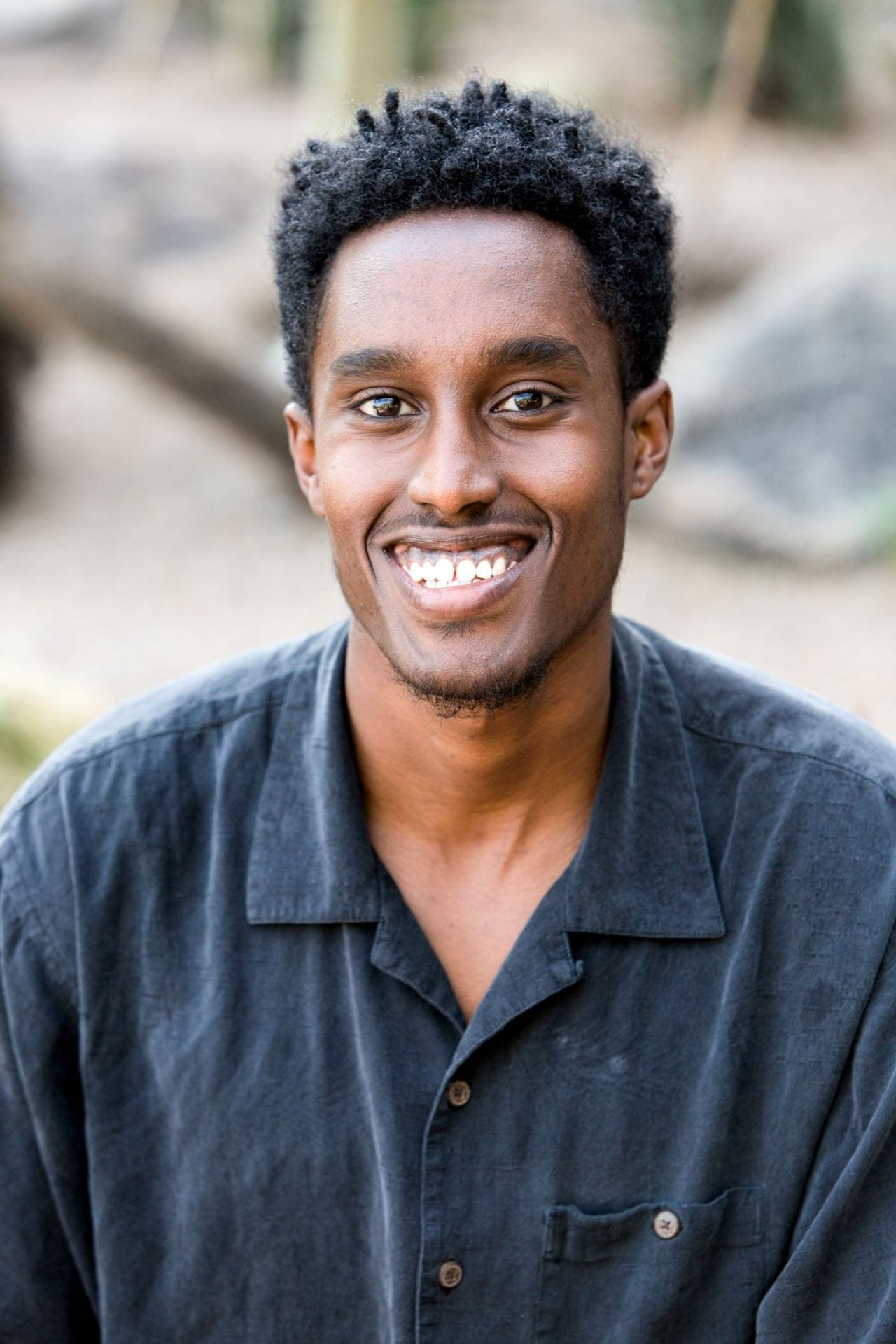
“I am always amazed at how people have done so much with a lot less than what I have. Those people displayed courage, hope, and resiliency to allow me to live the life I do today. To me, Black History Month is a celebration of the Black Excellence of the past but also a reminder to carry that torch onto today.”
Faisal Gedi
Computer Science, B.S. (GT ’19)
Software Engineer at Pinterest
Prior to college, Faisal Gedi had never written a line of code. Five years later, Gedi is a software engineer at Pinterest.
“At first, computer science seemed overwhelming and like I was learning a different language. It helped to keep in mind that all great things take time and discipline. No one great just picked up their craft and was amazing at it – they put in the hours and effort,” said Gedi.
Gedi saw the fruits of hard work and discipline come to life from his biggest inspiration, his mother. While he was in elementary school, his mom grew a business from a few items in a booth to a booming retail business. She did so without a formal education but filled with passion, grit, and hustle to accomplish her goal.
Moving forward, he hopes that the Black community will become more involved in and represented in the tech industry.
“There is so much potential here, and tech is creating opportunities that have never existed. Our world is becoming more and more digital and I want more Black people at the table. These products and algorithms are having real-life effects on our day to day, these effects are going to compound with time,” said Gedi.
Presently, Gedi is excited to celebrate so many Black contributions and achievements this month.
“I am always amazed at how people have done so much with a lot less than what I have. Those people displayed courage, hope, and resiliency to allow me to live the life I do today. To me, Black History Month is a celebration of the Black Excellence of the past but also a reminder to carry that torch onto today.”
SaBra Neal
Computational Science and Engineering, Ph.D. (GT ’18)
Principal Systems Engineer, Northrop Grumman

“On the path to greatness you will realize there is no growth in comfort. Get comfortable being uncomfortable.”
My parents have always instilled in me to be secure as a Black woman. I hope that I can help bring diversity to this field. I understand that people from the outside looking in see that it has been done and can be done. People can become intimidated because they don’t see someone that doesn’t look like them, but that is something you have to overcome.
In 2018, SaBra Neal became the first African American to graduate with a doctorate degree from the School of Computational Science and Engineering. Since graduation, Neal has worked as a Principal Systems Engineer at Northrop Grumman.
Neal’s advice to computing students? “You have to persevere and be consistent despite your surroundings, despite your ethnicity or your gender. You can’t let those factors drive your future.”

“On the path to greatness you will realize there is no growth in comfort. Get comfortable being uncomfortable.”
Clayton Lawrence
Computer Science, B.S. (GT ’18)
Founder and CEO, Pipeline Career Services
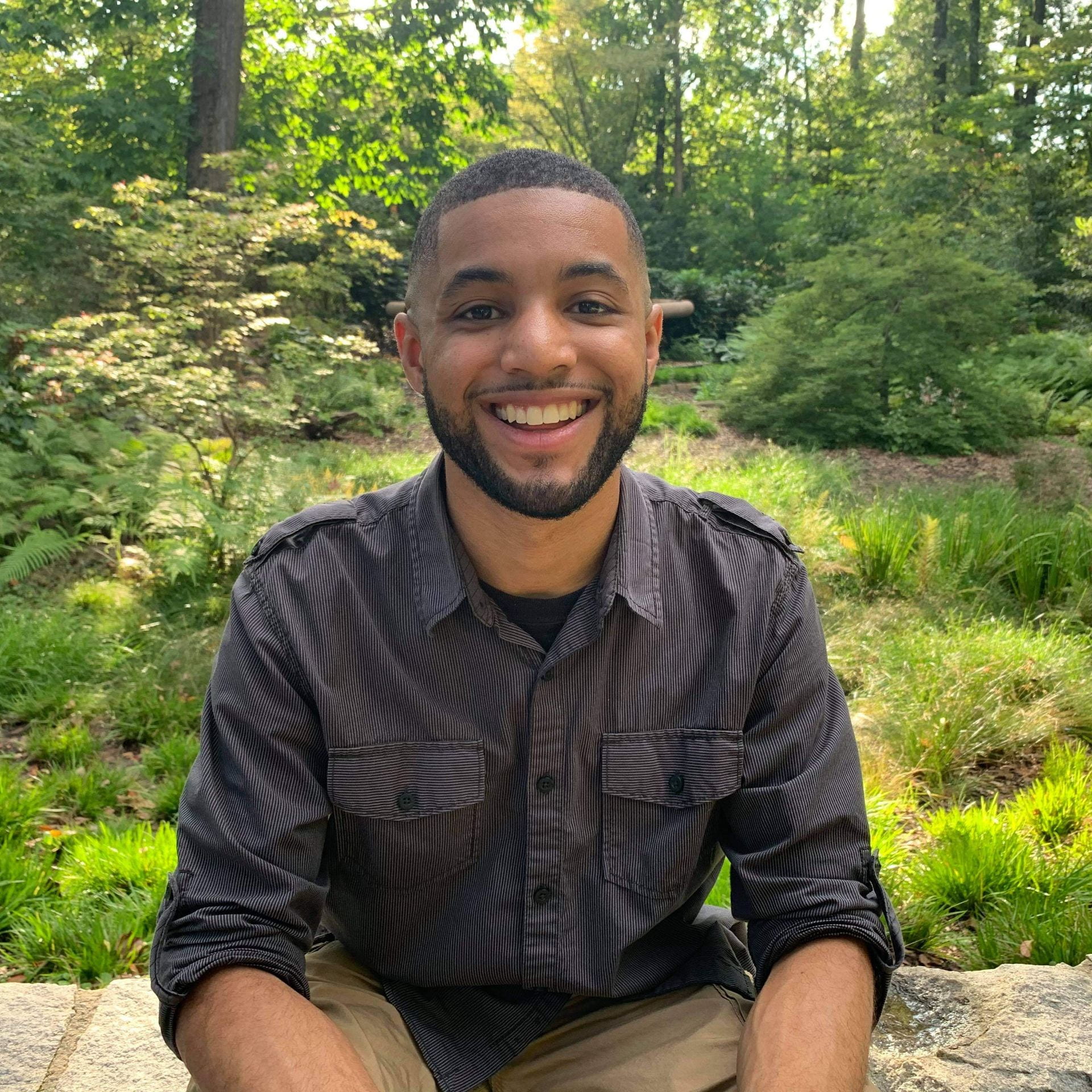
“You belong here. There may be times where you feel unqualified. There may be times where you feel like (or are) the only Black person, but you belong. Never forget how far you’ve come and what you had to overcome to be here. Technology runs the world, and now you do too.”
Growing up, Clayton Lawrence was always fascinated with technology but didn’t know anyone in the industry to teach him more about it. Lawrence soon realized that a lot of people were like him. They had skills and interests but because of lack of exposure, didn’t know about a correlating career. Through meeting people and participating in professional and career development activities hosted by the College of Computing, Lawrence was able to find a career he loves as a software engineer at NCR Corporation.
To help others also find their ideal career path, Lawrence founded and manages Pipeline Career Services. Pipeline offers services like resume reviews, technical and regular interview preparation, and LinkedIn profile optimization. Lawrence also hosts the podcast, Connecting with Careers, where he talks with people from various industries on topics like changing careers and getting a job during Covid-19.
Lawrence hopes that more people will realize that there is a space for them in technology, even if they don’t like coding.
“I feel like tech is skewed toward developers, which is fine if you like coding, but even if you don’t like to code there is a place for you in the tech industry. I’m always happy to see more Black representation on the corporate or entrepreneurship side,” said Lawrence.
Lawrence believes mentorship and exposure are two key elements to seeing more Black representation in not only the tech industry, but all industries.
“Mentorship helps you grow in ways that you wouldn’t be able to grow on your own. It’s the embodiment of lifting as you climb and as a result, all kinds of opportunities will come your way when you incorporate mentorship in your life,” said Lawrence.
Drawing from his own experience, Lawrence wants his fellow African-American Yellow Jackets to know, “You belong here. There may be times where you feel unqualified. There may be times where you feel like (or are) the only Black person, but you belong. Never forget how far you’ve come and what you had to overcome to be here. Technology runs the world, and now you do too.”
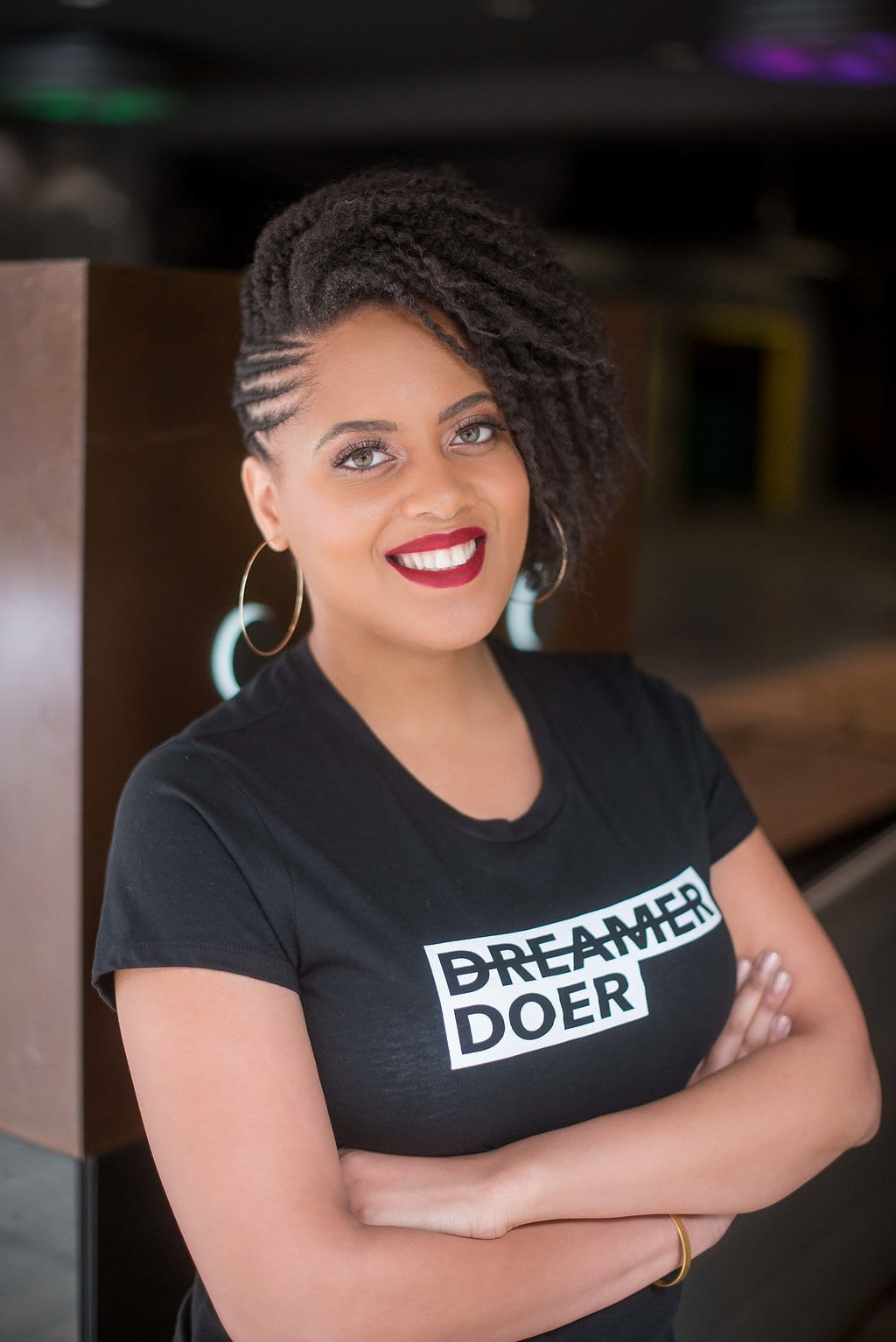
Jasmine Lawrence
Computer Science, B.S. (GT ’13)
Product Manager, x, the moonshot factory
Founder, EDEN BodyWorks
In collaboration with Code.org, Jasmine Lawrence teamed up with celebrities like Steph Curry, Serena Williams, and Aloe Blacc to promote changing the demographics of the tech industry. A program manager at Xbox at the time, Lawrence said, “Computer science is not just for women, it’s not just building things. It’s an entirely different way of seeing the world.”

Copyright: Kariba Photography
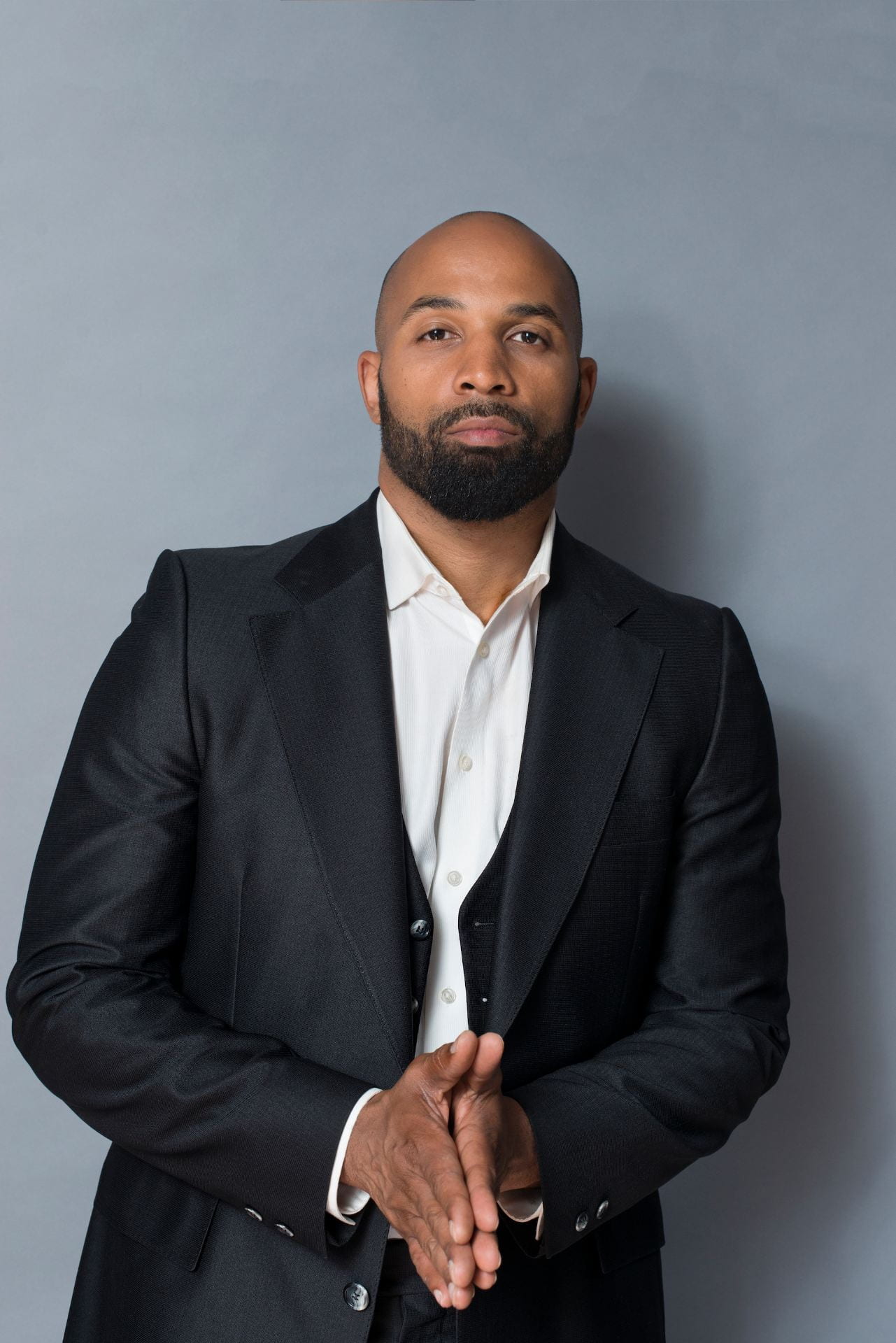
Photo Credit: Jihaad Muhammad
Muta’Ali Muhammad
Human-Computer Interaction, M.S. (GT ’02)
Filmmaker
With his new documentary, Yusuf Hawkins: Storm Over Brooklyn, film director Muta’Ali Muhammad explores the 1989 murder of Yusuf Hawkins and its role in the social justice movement. Muhammad believes it’s important to tell stories like Hawkins’ because to not tell them would be a disservice to not only the victim’s families, but culturally as well.
“After story after story of Black people being murdered for the color of their skin; when we see it happen and we don’t hear the stories being told on large platforms, we might accept it as normal and okay. We can’t allow that to happen,” said Muhammad
Muhammad’s experience as a Georgia Tech human computer interaction graduate has indirectly influenced his approach to filmmaking. His degree allowed him to marry the two worlds he wanted to be in – technology and filmmaking – and helped him create audiovisual stories that he would not have been able to create anywhere else.
Having a better understanding of technology has helped his creative work because technology facilitates almost every part of the filmmaking process. From development to color correction, to delivery and distribution, technology has an active and strong hand in the films people see. This partnership was very evident in the creation of Storm Over Brooklyn because of its usage of drone footage, camera stabilization and visual effects. The film was also shot in New York City, edited in Los Angeles, and is now being distributed worldwide on HBO Max – all aspects that would be not be possible with technological advances.
“Technology seems to lower the barriers to entry when it comes to almost anything, and that includes storytelling. Social justice stories usually don’t give large studios the return they need to achieve their financial goals so it’s often the indie artist who takes the leap into social justice films. Technology puts us in a position where we can film things that look great without having to have a budget that prohibits us from telling the story.”
People Paving the Way
Our world-class students, faculty, staff, and alumni are finding ways to expand access to computing, and to mentoring teachers, developing entrepreneurship, and supporting the Georgia Tech community. Ultimately, they are dynamically paving the way for more Black students to pursue careers in computer science-related fields.



